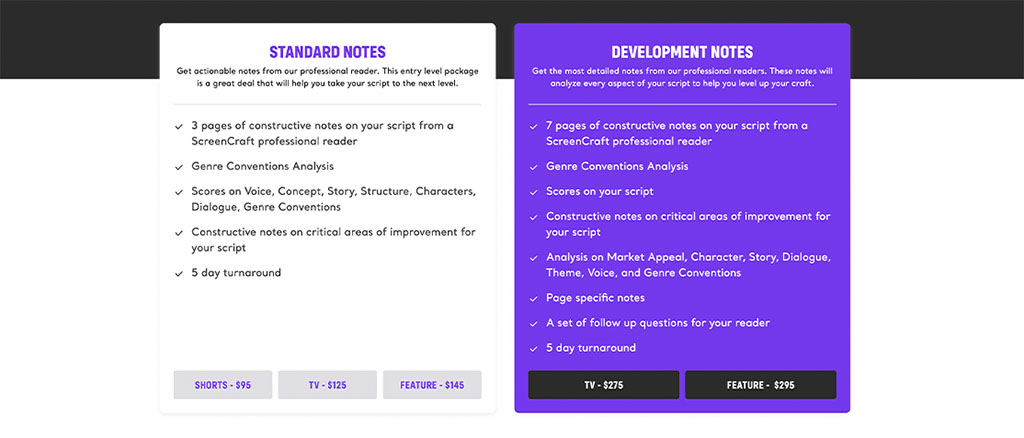Writing can be a lonely endeavor for many creatives, but others find comfort in writing with a partner. It’s even more impressive when the duos happen to be siblings who can bring their long-shared world to the screen. This couldn’t be more true when it comes to the comedic duo John and Dave Chernin.
Brothers John and Dave started their screenwriting careers as writers for It’s Always Sunny in Philadelphia, then departed after six seasons to spearhead The Mick. Now, the brothers are flexing their comedy muscles in a high school comedy feature, Incoming, which pays homage to raunchy teen films like Superbad and American Pie.
The 20-year-long path from staff writers to feature writers and directors wasn’t an easy path for the brothers, but every lesson learned from their highs and lows was valuable to the duo.
Check out Dave and John Chernin’s conversation with ScreenCraft, and the lessons we took away from their time as TV writers, their transition to features, and their daily efforts to sit down and write something that makes them laugh.
Finding the Comedy Together
After pursuing a career in screenwriting, John and Dave, who were living in the same house together after college, decided to write as a duo. At the time, John was working as an assistant to the Farrelly brothers and then with Ridley Scott’s commercial production company.
“We were fortunate enough to hook up with the [Always] Sunny guys. And we became a professional team then. Now, legally, we are bound together forever,” Dave said.
“After 15 years of working together professionally, we finally got separate offices on a job just two days ago. Right now, we’re in my office, but usually, we spend every year with our desks pushed together, facing each other, and sharing a room,” John added.
After working on Always Sunny in Philadelphia, the brothers decided it was time to make the transition from staff writers to showrunners with The Mick.
“When The Mick happened, we were ready for it. We had the right amount of experience and the right amount of failure, and we had learned a lot of tricks along the way,” Dave said, noting that many of the tricks they learned as staff writers continue to influence almost all of their work since. “By the time The Mick hit, we were at an age and experience level where we were ready to take the next step.”
Read More: How to Become a Showrunner
The Balance Act of a Screenplay
No matter how long you’ve been writing, finding the tonal balance between story and comedy isn’t easy. It’s a skill that takes time, failures, success, and some notes from industry insiders to see what hits. For John and Dave, finding that balance has become easier thanks to a trick they learned from their time with Always Sunny and The Mick.
“We love that juxtaposition that crisscrosses halfway through the film. That’s a TV trick we picked up from Always Sunny, where you have two factions of characters on opposite sides of an issue, which keeps the story fresh. We can always jump to the other when we feel like we’re running out of gas,” Dave said.
This lesson isn’t just for TV writing. The brothers used it when writing their feature film to help keep the audience and themselves engaged with the story.
“I think one thing we do a lot in television is juxtapose points of view and have them crisscross. So, the two guys [in Incoming] who are invited to the party and have this opportunity to be cool and popular end up stepping in shit by the end and learning a lesson. Meanwhile, the two outcasts who aren’t allowed to go, who are kind of put upon at the beginning of the movie, really grow into themselves by the end,” Dave noted.
But finding that tonal balance that keeps the story moving will be a different journey for every writer. That’s what the Chernin brothers find so exciting about sitting down for nearly six hours every day they are not on set to write.
“The great thing about writing is that you have so much control over it. I don’t think you necessarily know what the audience is going to respond to, but I don’t think you need to. You should be writing for yourself and working on your craft to get better. No matter what is going on, there are a million movies, a million TV shows that you can be watching, devouring scripts, and writing your own. There are so many different ways to succeed in this business, to level up, but many of them rely on opportunity and luck. However, as a writer, you are in control of your destiny in the sense that you can always get better at your craft,” John said.
Read More: How Writers Can Avoid Procrastination, Find Discipline, and Jumpstart Motivation

‘Incoming’ (2024)
Finding Ways to Keep Writing
While there are many ways to get your script in front of people, like through contest, fellowships, or making connections while working any job at a studio, John and Dave know that getting your foot in the door isn’t an easy task. But there are ways to improve your skills and flex that creative muscle that will make each script you write an improvement from your last one.
For Dave, reading as many scripts as you can is a great way to not only learn structure but develop style. “You can get almost any script on the internet now, so start checking out people’s styles and their structures. Feel free to borrow little tricks until you develop your own style,” he noted.”[Writing] really is a muscle. We’re almost 20 years into our career, and I still feel that every script we write is better than the one before. Keep at it. An opportunity will come, but you have to be ready for it.”
One way that John says opportunity will come is by surrounding yourself with fellow creatives who make you want to produce great work to show them.
“Surround yourself with people you want to work with. You’ll make each other better, and it’s fun. Dave and I learned so much on Always Sunny because we were surrounded by such incredibly talented people who became our friends. Then, we would pass the writing around and ask, ‘Can you take a look at this?’” John said. “Writing can be a lonely pursuit, so anything you can do to make it a little more social and enjoyable will go a long way.”
Once you have a script that you’re excited about, submit it to a contest like the ScreenCraft TV pitch competition or make the project yourself with those who are also excited about the project.
“Make something yourself. Produce something yourself. With today’s technology, you’re not always going to have the opportunity to work on a studio-funded show, but you always have the ability to get your phone out and make something. I can’t stress enough how much you learn from doing that, whether it’s good or bad,” Dave said.

—
If you want to be a TV staff writer, a showrunner, or a writer/director for feature films, you start by finishing a screenplay, sharing it, and refining it until it becomes something tangible. Every “no” is a lesson learned that can then be translated into future success, but you have to keep working at your craft. As John and Dave say, you are in control of your destiny. You just have to keep writing.
Read More: Why Writing TV is Better than Writing Feature Films (and Why it’s Not)
Get actionable Comedy Notes from a professional reader with real industry experience!
The post How ‘Incoming’ Screenwriters Transitioned from Staff Writers to Feature Filmmakers appeared first on ScreenCraft.
Go to Source
Author: Alyssa Miller


